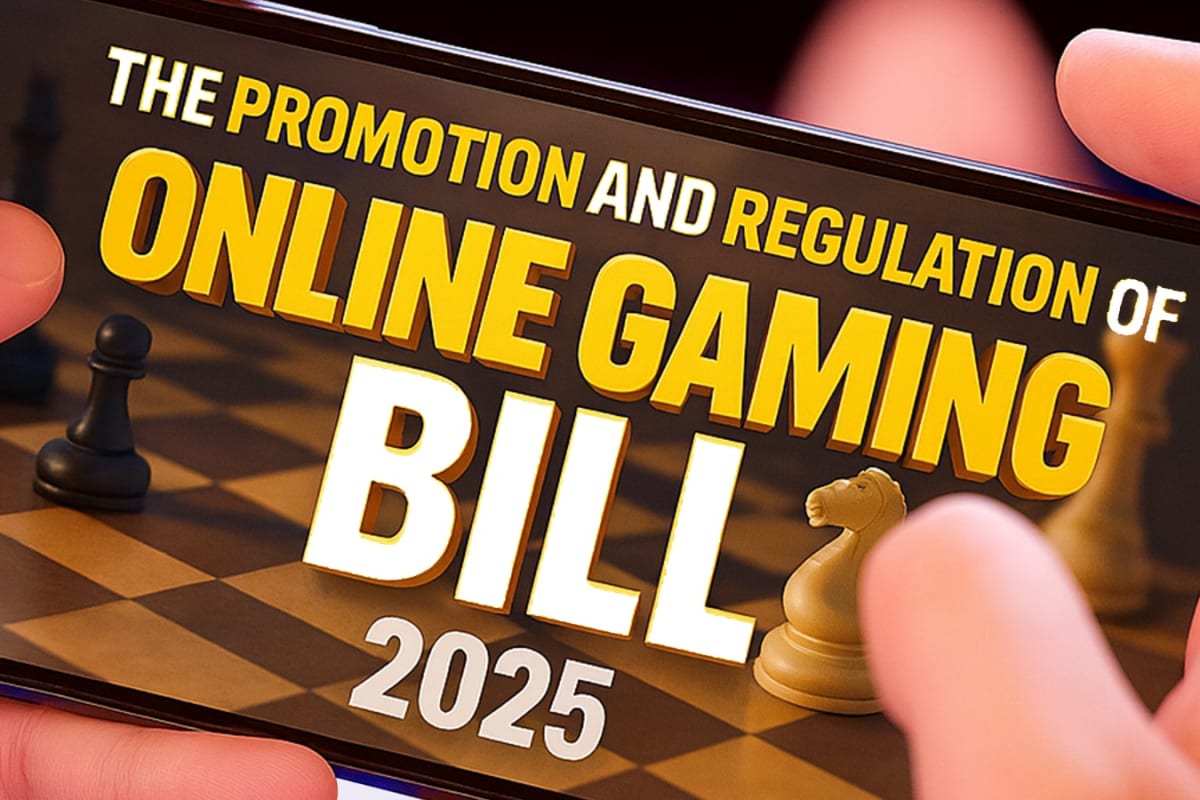

Prime Minister Narendra Modi has lauded the passage of the Online Gaming Regulation Bill, 2025, emphasizing its potential to encourage e-sports and create a safer digital environment. The bill, which was recently passed in both the Lok Sabha and Rajya Sabha, aims to regulate the online gaming industry, distinguishing between games of skill and chance, and imposing strict measures against real-money gaming platforms.
The Prime Minister highlighted that the legislation will control illegal gaming platforms and foster a safer digital ecosystem, indicating the government's commitment to addressing rising concerns about gaming addiction and fraudulent activities. The bill seeks to promote e-sports and safe social or educational games, while simultaneously banning risky money games that could lead to addiction or financial losses. It also aims to protect citizens, especially the youth, from fraud, money laundering, and other online risks, and support innovation by providing rules and guidelines for the responsible growth of India's gaming industry.
The Online Gaming Bill, 2025, has been designed to establish a regulatory framework for e-sports, educational, and social gaming in India. It strictly prohibits online money-based and betting games, along with their advertising and promotion. The bill also prevents payment service providers and financial intermediaries from facilitating transactions related to such games. This comprehensive ban on offering, operating, or facilitating online money games, regardless of whether they are based on skill or chance, underscores the government's intent to safeguard individuals from potential financial and social risks.
Under the new regulations, offering or facilitating online money gaming could result in imprisonment for up to three years and/or a fine of up to ₹1 crore. Advertising money games could lead to imprisonment for up to two years and/or a fine of up to ₹50 lakh. Financial transactions related to money games could attract imprisonment for up to three years and/or a fine of up to ₹1 crore. Repeat offenses could result in imprisonment ranging from three to five years and fines of up to ₹2 crore. Certain offenses are classified as cognizable and non-bailable, granting officers the authority to investigate, search, and seize digital or physical property linked to these offenses, and in certain cases, even enter, search, and arrest without a warrant.
The passage of the Online Gaming Bill has significant implications for India's $3.8 billion gaming industry. While real-money gaming (RMG) currently dominates the market, contributing nearly 86% of the total revenue in 2024, the new regulations are expected to shift the industry's focus towards e-sports and casual gaming. The bill is expected to provide legal recognition and promotion to e-sports and online social gaming, with the creation of an authority to develop programs and schemes to support these segments.
However, the ban on real-money gaming has raised concerns among stakeholders. Some experts believe that it could destabilize one of India's fastest-growing ecosystems, potentially pushing players to underground markets and diverting investments to more favorable jurisdictions. The advertising ban could also severely impact associated sectors, including media and sports, with celebrity endorsements of gaming platforms now under scrutiny. Despite these concerns, the government maintains that the bill is necessary to address the adverse impacts of online money games on society, particularly among middle-class youth. Union Minister Ashwini Vaishnaw has emphasized that the government aims to promote e-sports and social gaming, transforming India into a game-making hub while protecting citizens from the risks associated with online money gaming.